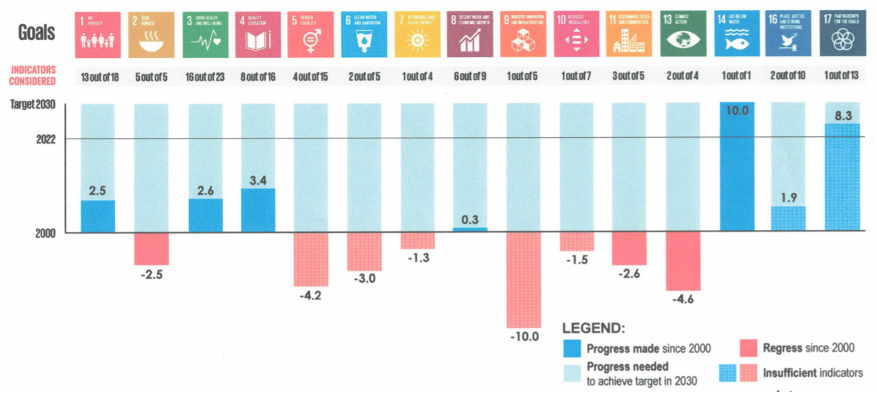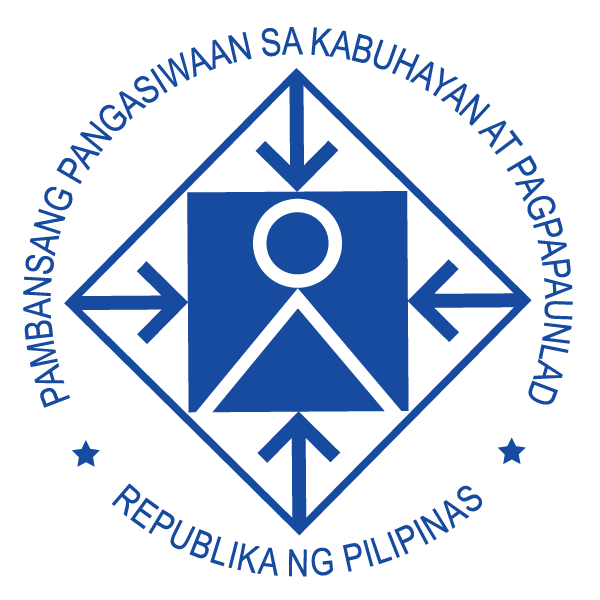
NEDA has extended the deadline for the Call for Proposals for the FY 2026 PCB on the SDGs until January 17, 2025, 5:00PM. We look forward to receiving your proposals on/or before the extended deadline.
This call is made in light of the Amended Program Convergence Budgeting (PCB) Framework for SDGs and its Implementing Guidelines, which is anchored on Republic Act No. 11476. Section 9 of said law mandates the allocation of 20 percent of the total revenues from excise taxes on alcohol, heated tobacco products (HTPs), and vapor products (vapes) for the attainment of the SDGs.
The PCB-SDG was put in place to ensure a holistic approach in steering better domestic resource flows amidst limited fiscal space toward accelerating the implementation and attainment of the country’s SDG commitment. It also intended to promote synergistic partnerships and collaboration by leveraging stakeholder engagement and resources for the SDGs.
For more detailed information, scroll through the details below. You may reach the SC-SDG Secretariat through email at sdg@neda.gov.ph or visit the SDG Website at sdg.neda.gov.ph to check updates and other related news.
Requirements
- National Government Agencies (NGAs) including their bureaus, attached agencies and instrumentalities;
- Government-Owned and Controlled Corporations (GOCCs); and
- Members of the Constitutional Fiscal Autonomy Group (CFAG).
PAPs that are responsive to the intended outcomes of SDG targets and indicators lagging behind, and aligned with the country’s Philippine Development Plan 2023-2028 priorities and strategies may qualify for funding, except:
- PAPs of NGAs that fall within the devolved functions and services of the LGUs. Unless, LGUs have counterpart funding on the proposed PAPs;
- Existing PAPs of NGAs that are funded under Tier 1 of the General Appropriations Act (GAA); and
- PAPs that are already enrolled in other existing PCBs, and/or funded by development partners, and other government funding.
- General Criteria
- PAPs shall be aligned with the country’s Philippine Development Plan 2023-2028;
- The proposal must be responsive to the priority SDG goals, targets and indicators lagging behind based on the approved PCB-SDG Guidelines and recent Pace of Progress by the Philippine Statistics Authority (PSA).
- Project proposals must fall under the following flagship programs:
- Integrated Food and Nutrition Security Program;
- Strengthening of the Local Committee Against Trafficking and Violence Against Women and their Children;
- National Anti-Child Marriage Program;
- Infrastructure Regional Development specifically on digitalization for remote areas;
- Implementation of the Integrated Water Resource Management Plan;
- Reducing Vulnerability in Disaster-prone areas;
- Creation of Green, Open, and Public Spaces;
- Establish the Defense in the Philippines;
- Modernize Government Processes, Systems and Infrastructure;
- Strengthen Statistical Capacity of Government Offices; and
- Establishment of Local Participatory Governance and Social Reform Mechanisms.
- Proposal submission, evaluation, and approval:
- The processing of project proposals commences only upon submission of complete documents. Incomplete requirements shall be returned to the proponents for completion within five (5) days upon receipt. All application forms and required documents shall be duly signed by an authorized official.
- Scanned or digital copies of the following forms shall be accomplished and submitted by the proponent to the SC-SDG Secretariat:
- Checklist of Documentary Requirements for PCB on the SDGs
- Endorsement Letter from the Head of Agency
- Certification of Eligibility
- PCB-SDG Project Proposal
- SDG Responsiveness Form
- Project Work and Financial Plan
- Other supporting documents, as deemed necessary.
- Proposals shall be screened and evaluated through the following process:
- Step 1. Determination whether the proposed project falls within the scope of eligible PAPs.
- Step 2. Assessment of Inclusiveness and Sustainability.
- Step 3. Prioritization based on responsiveness to SDGs and geographical areas that are most lagging behind.
- The proposed PAPs must be for implementation starting January 2026.
- 1. Republic Act No. 11467
- 2. Amended PCB Framework for the SDGs and Implementation Guidelines
- 3. List of Key Flagship Programs and Updated Indicators under the PCB for SDGs
- 4.a Checklist of Documentary Requirements
- 4b. List of Stakeholders’ Chamber members (as of 2024)
- 4c. Form 1 – Agency Certification
- 4d. Form 2 – PCB-SDG Project Proposal Template
- 4e. Form 3 – SDG Responsiveness Form
- 4f. Form 4 – Work and Financial Plan
- 4g. Form 5 – Designation Form for the 1 PCB-SDG focal
Frequently asked questions
Through the Program Convergence Budgeting (PCB) Framework for SDGs, the twenty percent (20%) SDG allocations from sin tax revenues shall finance programs, projects, and activities (PAPs) that seeks to accelerate the implementation of SDGs, specifically focusing on SDG targets that require exponential acceleration of progress or reversal of negative trends to achieve the 2030 targets.
For this second round of the SDG-PCB, lagging-behind SDGs are determined based on the 2022 SDG Pace of Progress Current Status Index by the Philippine Statistics Authority (PSA). Further, SDG indicators adopted by the Philippines in its SDG Indicator Framework and/or the Philippine Development Plan also serve as basis for identifying specific areas that need acceleration for each SDG target.
Figure 1. PSA 2022 Pace of Progress on SDGs using the Current Status Index (CSI)

For this round of proposal, the excise tax revenues collected and earmarked for SDGs in 2024 will be utilized to fund PAPs to be implemented in 2026, considering the budget process.
The project proposal shall be duly accomplished by the proposing agency, and duly signed by the Head of implementing entity or agency.
The evaluation of proposals is estimated to take 30-35 days. Qualified proposals for funding will be endorsed by the DBCC to the Department of Budget and Management (DBM), for the evaluation of budget proposals.
Yes, proposed PAPs may include multi-year projects subject to the relevant provisions of the FY 2026 General Appropriations Act and DBM Circular Letter, among others.
The SC-SDG Secretariat will inform all agencies of the results in writing. The Secretariat may also be reached through email at sdg@neda.gov.ph.
Upon receipt of the notice from the NEDA SC-SDG Secretariat, agencies with DBCC-approved proposals are to follow these next steps:
- Include their submitted project into the agency’s budget proposal for FY 2026;
- Submit to the DBM their proposed PAPs through Budget Preparation (BP) Form No. 206 for National Government Agencies, and DBM Form No. 708 for GOCCs and GFIs, along with BP 200, 201, and 202 and other applicable BP forms. Proponent offices to coordinate with their agency’s Budget Offices for other requirements.
- Furnish the SC-SDG Secretariat copies of submitted forms to the DBM for reference and monitoring purposes. Submissions must be addressed to Undersecretary Rosemarie G. Edillon, NEDA Policy and Planning Group, and sent to the SC-SDG Secretariat at sdg@neda.gov.ph.
Upon approval of the SC-SDG, NEDA as the PCB-SDG’s lead agency, shall submit to the DBM the list of proposed PAPs. The list of PAPs to be enrolled under the PCB-SDG shall then undergo the same budget review and process of the DBM, and be subject to existing budgeting and accounting laws, rules, and regulations as non-PCB PAPs. Each proposed PAP shall be reviewed against the criteria stated in the annual Budget Call and the Budget Priorities Framework (BPF). The release of funds for the qualified PAPs shall follow the annual National Budget Circular issued on the matter.
There is no ceiling on project costs.
You may request for the directory from Stakeholders’ Chamber’s Secretariat at sdg-stakeholder@neda.gov.ph.
Should the NEDA-endorsed projects to DBM be approved, they will be part of the agency’s allocation under the 2026 GAA. This is because the earmarked funds are part of the common pool and is not a special fund.


